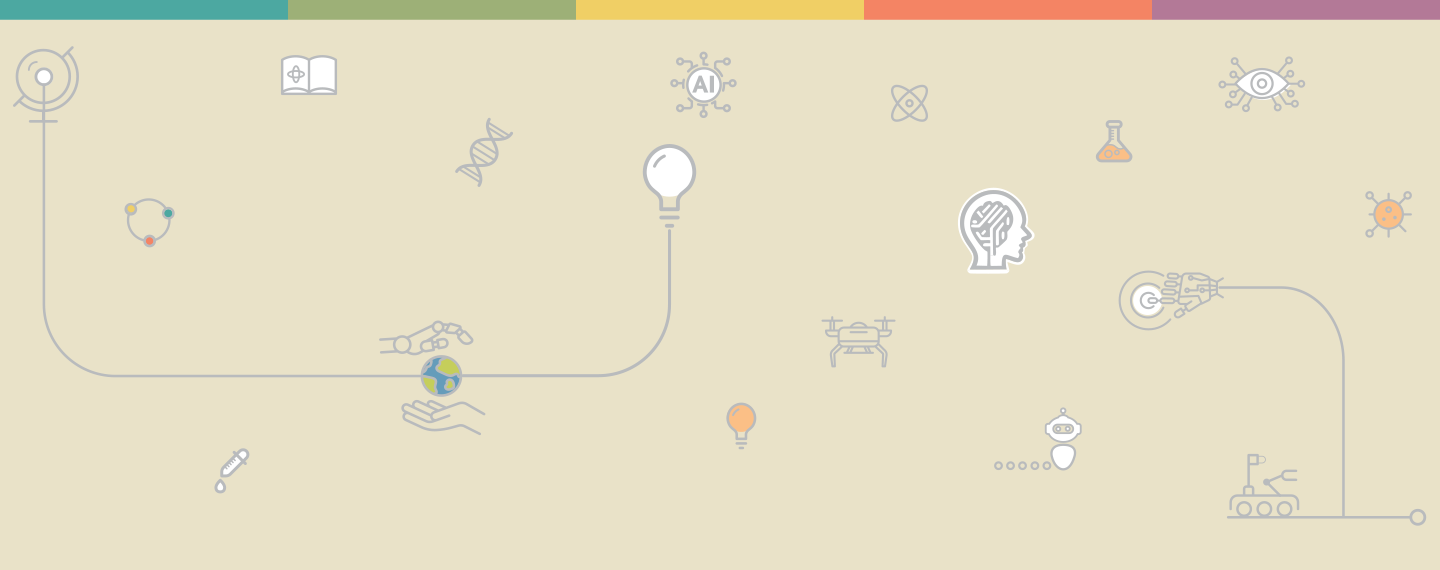New World in Healthcare

 AI Bringing on a New World in Healthcare
AI Bringing on a New World in Healthcare
By Rebecca Palmer '00 (Senior Consultant, AI, Baxter International, Columbus, OH)
When was the last time you interacted with AI? I bet it was today.
AI may or may not be something you think about when you interact with chatbots, Alexa, Google, and Siri, and maybe those pesky social media algorithms, but did your car help you parallel park? Have you used Google or Adobe Photoshop tools to eliminate photobombers or erase inconvenient shadows in those vacation pics? Have you received editorial assistance on an article you wrote (like I did to proofread this article)?
AI holds enormous promise in an area that touches us all: healthcare. Let's explore how AI can revolutionize medical equipment and the patient experience.
The Future of Medical Equipment
To support medical product innovation, generative AI can proactively collect and summarize recently published studies using Large Language Models (LLMs), such as OpenAI's ChatGPT and Meta's Llama2. These can be turned into push notifications so that product developers can always leverage the latest advances in their fields when developing tomorrow's devices.
When it comes to assembling new products, AI is capable of analyzing vast sets of historical data to "learn" from past experiences. AI can identify potential manufacturing defects earlier in product development, suggest engineering efficiencies to make products faster at less cost, or simulate various device-use cases to fine-tune overall performance. In general, AI's ability to extract actionable insights from massive data sets will empower the creation of cutting-edge medical solutions across all areas of care.
Once new products are released into the marketplace, AI-powered interactive educational materials can support clinicians to implement new technologies quickly and effectively. Examples include models that provide real-time guidance and feedback during usage and virtual reality tools that allow clinicians to practice in realistic settings with adaptive learning environments to advance their skills. AI can also provide collaborative learning environments where clinicians can share experiences and best practices to help others adopt new technologies faster, further spurring us toward innovative new healthcare solutions.
In patient care settings, AI offers real-time data analysis with the added benefit of hindsight from past clinical decisions. Healthcare providers can leverage this hindsight to predict patient outcomes more precisely and diagnose disease more accurately.
Soon, AI will even be used to proactively alert clinicians of potential treatment errors—which can be catastrophic for patients and costly for facilities— when a treatment deviates from standard operational procedures for the patient.
Furthermore, AI can support routine testing and guidance to keep medical equipment properly maintained and always ready to use. These AI-powered devices will be able to order replacement parts when needed, troubleshoot themselves, and then explain to either a human or a computer how to fix the problem. This promises to slash maintenance costs and reduce the likelihood of device failures.
The Future of the Patient Experience
Reimagine your annual physical with a more proactive approach to maintaining your health and monitoring risks, rather than belatedly trying to repair your health after the damage has been done.
Thanks to noninvasive diagnostics that use AI and biomarkers to screen blood, urine, and saliva, it will become possible to catch disease at its earliest points and even predict it before it happens. Examples of this include the early identification of bladder or prostate cancers, Alzheimer's disease, and Parkinson's disease, as well as the long-term maintenance of respiratory disease.
If you are diagnosed with a disease, your primary care physician will use AI-derived personalized treatment plans so you are treated as the complex individual that you are, with a full picture of your unique life circumstances.
A favorite of mine is the concept of an AI-assisted digital health wallet. (Who else is tired of filling out endless paper forms every time you go to an appointment?)
This tool centralizes your health information from your various providers across the years and locations and sends updates to your active clinicians whenever new results arrive or you begin new medications. The tool will also suggest tailored therapeutic and preventative options for your primary care provider to try, as well as send you personalized reminders and ideas to help you adhere to your healthcare plan. And if you ever find yourself in an ER, you have all the important, up-to-date information at your fingertips for yourself and your loved ones.
One potential impact of AI that largely goes unnoticed is more accessible biomedical information for the public, explained in understandable terms that can help us become more knowledgeable advocates for ourselves and our families.
Are you confused about how Ozempic and Wegovy (GLP-1 drugs) work? Feel that you need a better understanding of how mRNA vaccines work? AI can break this down for you in nontechnical language and provide resources for additional reading. If you need to decode medical instructions from your doctor, are struggling to understand the key points of a health article, or want to dive into scientific literature, AI can help you summarize the key points and explaining it in ways that help you understand more deeply.
These ideas barely scratch the surface of what's possible. AI's ability to uplift healthcare is strong, though it will take time. Whether AI makes a difference by any or all of these paths, sooner or later, the hope is that it enables a healthier future for us all.
